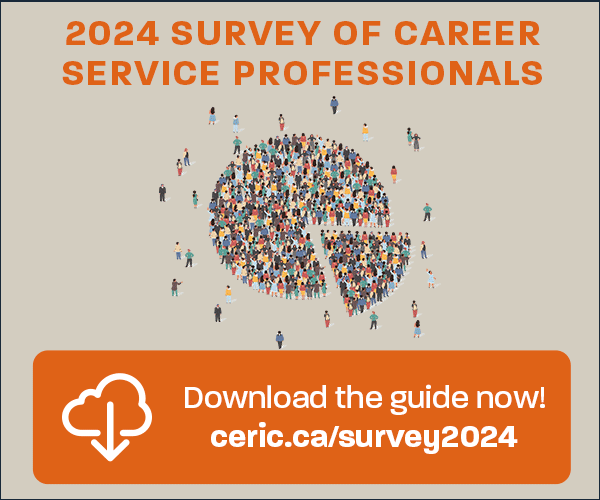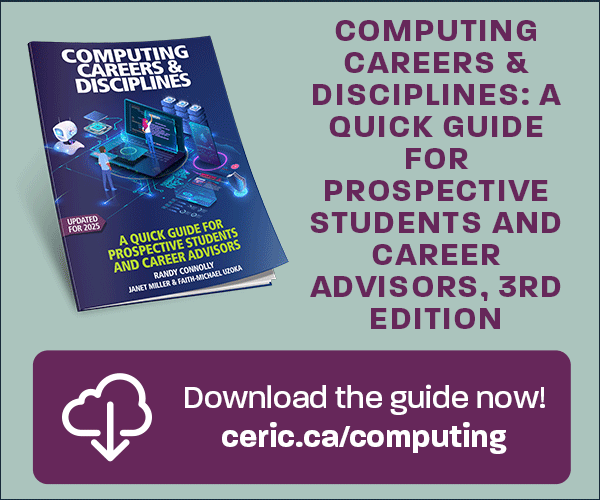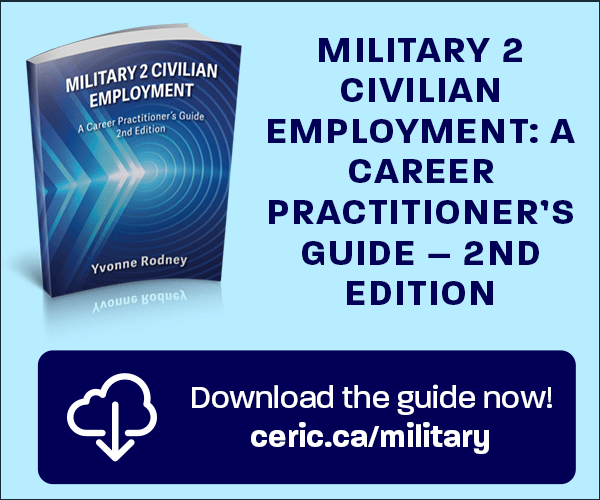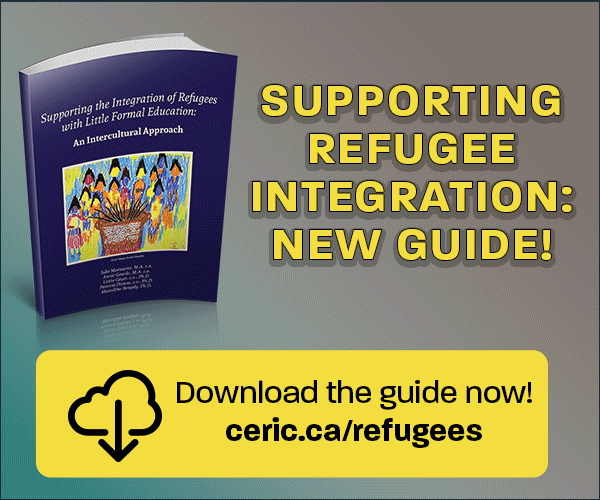Emotional Intelligence and Career Wellbeing
DOI:
https://doi.org/10.53379/cjcd.2025.421Keywords:
emotional intelligence, career wellbeing, career theories, counselling interventionsAbstract
Emotional intelligence (EI) refers to the human emotional aptitude that represents an inherent ability for learning or understanding in human interaction and interpersonal relationships. Research suggests that social and emotional competency, as represented by EI, are significant predictors of individuals' success in their lives and careers. To this end, this article addresses the role of EI in the context of vocational and career psychology. Guided and informed by major career theories, it will propose counselling interventions that may help individuals with low EI enhance their capacity to cope with their vocational life more effectively
References
Adeoye, H., & Torubelli, V. (2011). Emotional intelligence and human relationship management as predictors of organizational commitment. IFE PsychologIA : An International Journal, 19(2), 212–226. https://doi.org/10.4314/ifep.v19i2.69532
Agu, S.A., & Nwankwo, B. E. (2019). The role of psychological wellbeing and emotional intelligence in maintaining healthy interpersonal relationship. Nigerian Journal of Social Psychology, 2(1). https://nigerianjsp.com/index.php/NJSP/article/view/28
Bandura, A. (1995). Exercise of personal and collective efficacy in changing societies. In A. Bandura (Ed.), Self-efficacy in changing societies (pp. 1–45). Cambridge University Press.
Brackett, M. A., & Katulak, N. A. (2007). Emotional intelligence in the classroom: skill-based training for teachers and students. In J. Ciarrochi & J. D. Mayer (Eds.), Applying Emotional Intelligence: A practitioner’s guide (1-27). Psychology Press.
Bru-Luna, L. M., Martí-Vilar, M., Merino-Soto, C., & Cervera-Santiago, J. L. (2021). Emotional intelligence measures: a systematic review. Healthcare, 9(12), 1696. https://doi.org/10.3390/healthcare9121696
Clark, M. A., Robertson, M. M., & Young, S. (2019). “I feel your pain”: A critical review of organizational research on empathy. Journal of Organizational Behavior, 40(2), 166–192. https://doi.org/10.1002/job.2348
Cochran, L. (1997). Career counseling: A narrative approach. Sage publications.
Cuff, B. M. P., Brown, S. J., Taylor, L., & Howat, D. J. (2016). Empathy: A review of the concept. Emotion Review, 8(2), 144–153. https://doi.org/10.1177/1754073914558466
Dacre Pool, L., & Qualter, P. (2012). Improving emotional intelligence and emotional self-efficacy through a teaching intervention for university students. Learning and Individual Differences, 22(3), 306-312.
Drigas, A. S., & Papoutsi, C. (2018). A new layered model on emotional intelligence. Behavioral Sciences, 8(5), 45. https://doi.org/10.3390/bs8050045
Extremera, N., Sánchez-Álvarez, N., & Rey, L. (2020). Pathways between ability emotional intelligence and subjective well-being: Bridging links through cognitive emotion regulation strategies. Sustainability, 12(5), 2111. https://doi.org/10.3390/su12052111
Hodzic, S., Scharfen, J., Ripoll, P., Holling, H., & Zenasni, F. (2018). How efficient are emotional intelligence trainings: A meta-analysis. Emotion Review, 10(2), 138–148. https://doi.org/10.1177/1754073917708613
Kotsou, I., Mikolajczak, M., Heeren, A., Grégoire, J., & Leys, C. (2019). Improving emotional intelligence: A systematic review of existing work and future challenges. Emotion Review, 11(2), 151–165. https://doi.org/10.1177/1754073917735902
Krishnakumar, S., Perera, B., Hopkins, K., & Robinson, M. D. (2019). On being nice and effective: Work-related emotional intelligence and its role in conflict resolution and interpersonal problem-solving. Conflict Resolution Quarterly, 37(2), 147–167. https://doi.org/10.1002/crq.21268
Kundi, Y. M., & Badar, K. (2021). Interpersonal conflict and counterproductive work behavior: the moderating roles of emotional intelligence and gender. International Journal of Conflict Management, 32(3), 514–534. https://doi.org/10.1108/IJCMA-10-2020-0179
Lent, R. W., & Brown, S. D. (2013). Social cognitive model of career self-management: toward a unifying view of adaptive career behavior across the life span. Journal of Counseling Psychology, 60(4), 557. https://psycnet.apa.org/doi/10.1037/a0033446
Lent, R. W., & Brown, S. D. (2017). Social cognitive career theory in a diverse world: Guest editors’ introduction. Journal of Career Assessment, 25(1), 3-5. https://doi.org/10.1177/1069072716657811
Lent, R. W., & Brown, S. D. (2019). Social cognitive career theory at 25: Empirical status of the interest, choice, and performance models. Journal of Vocational Behavior, 115, 103316. https://doi.org/10.1016/j.jvb.2019.06.004
Lent, R.W., Brown, S. D., & Hackett, G. (2002). Social cognitive career theory. In D. Brown (Ed.), Career choice and development (4th ed., pp. 255-311). Jossey-Bass.
Lent, R. W., Ireland, G. W., Penn, L. T., Morris, T. R., & Sappington, R. (2017). Sources of self-efficacy and outcome expectations for career exploration and decision-making: A test of the social cognitive model of career self-management. Journal of Vocational Behavior, 99, 107–117. https://doi.org/10.1016/j.jvb.2017.01.002
Makkar, S., & Basu, S. (2019). The impact of emotional intelligence on workplace behaviour: A study of bank employees. Global Business Review, 20(2), 458–478. https://doi.org/10.1177/0972150917713903
Matthews, G., Roberts, R. D., Zeidner, M. (2012). Emotional Intelligence 101. Psyc 101 Series. Springer Publishing.
Mattingly, V., & Kraiger, K. (2019). Can emotional intelligence be trained? A meta-analytical investigation. Human Resource Management Review, 29(2), 140–155. https://doi.org/10.1016/j.hrmr.2018.03.002
Mayer, J. D., Salovey, P., & Caruso, D. R. (2004). Emotional intelligence: theory, findings, and implications. Psychological Inquiry, 15(3), 197-215. https://doi.org/10.1207/s15327965pli1503_02
Miao, C., Humphrey, R. H., & Qian, S. (2017). A meta-analysis of emotional intelligence and work attitudes. Journal of Occupational and Organizational Psychology, 90(2), 177–202. https://doi.org/10.1111/joop.12167
Moeller, C., & Kwantes, C. T. (2015). Too much of a good thing? Emotional intelligence and interpersonal conflict behaviors. The Journal of Social Psychology, 155(4), 314–324. https://doi.org/10.1080/00224545.2015.1007029
Nelis, D., Quoidbach, J., Mikolajczak, M., & Hansenne, M. (2009). Increasing emotional intelligence: (How) is it possible? Personality and Individual Differences, 47(1), 36-41. https://doi.org/10.1016/j.paid.2009.01.046
Noor, F., & Hanafi, Z. (2016). Relationship between emotional intelligence and academic achievement in emerging adults: A systematic review. International Journal of Academic Research in Business and Social Sciences, 6. https://doi.org/10.6007/IJARBSS/v6-i6/2197
Sánchez-Álvarez, N., Extremera, N., & Fernández-Berrocal, P. (2016). The relation between emotional intelligence and subjective well-being: A meta-analytic investigation. The Journal of Positive Psychology, 11(3), 276–285. https://doi.org/10.1080/17439760.2015.1058968
Serrat, O. (2017). Understanding and developing emotional intelligence. In O. Serrat (Ed.), Knowledge Solutions: Tools, Methods, and Approaches to Drive Organizational Performance (pp. 329–339). Springer. https://doi.org/10.1007/978-981-10-0983-9_37
Udayar, S., Fiori, M., & Bausseron, E. (2020). Emotional intelligence and performance in a stressful task: The mediating role of self-efficacy. Personality and Individual Differences, 156, 109790. https://doi.org/10.1016/j.paid.2019.109790
Young, R. A., Marshall, S., & Valach, L. (2007). Making career theories more culturally sensitive: Implications for counselling. The Career Development Quarterly, 56(1), 4-18. https://doi.org/10.1002/j.2161-0045.2007.tb00016.x
Young, R. A., Vallach, L., & Collin, A. (2002). A contextual explanation of career. In D. Brown & Associates (Eds.), Career choice and development (4th ed., pp. 206-252). Jossey-Bass.

Downloads
Published
How to Cite
Issue
Section
License
Copyright (c) 2025 Canadian Journal of Career Development

This work is licensed under a Creative Commons Attribution-NonCommercial-NoDerivatives 4.0 International License.
















